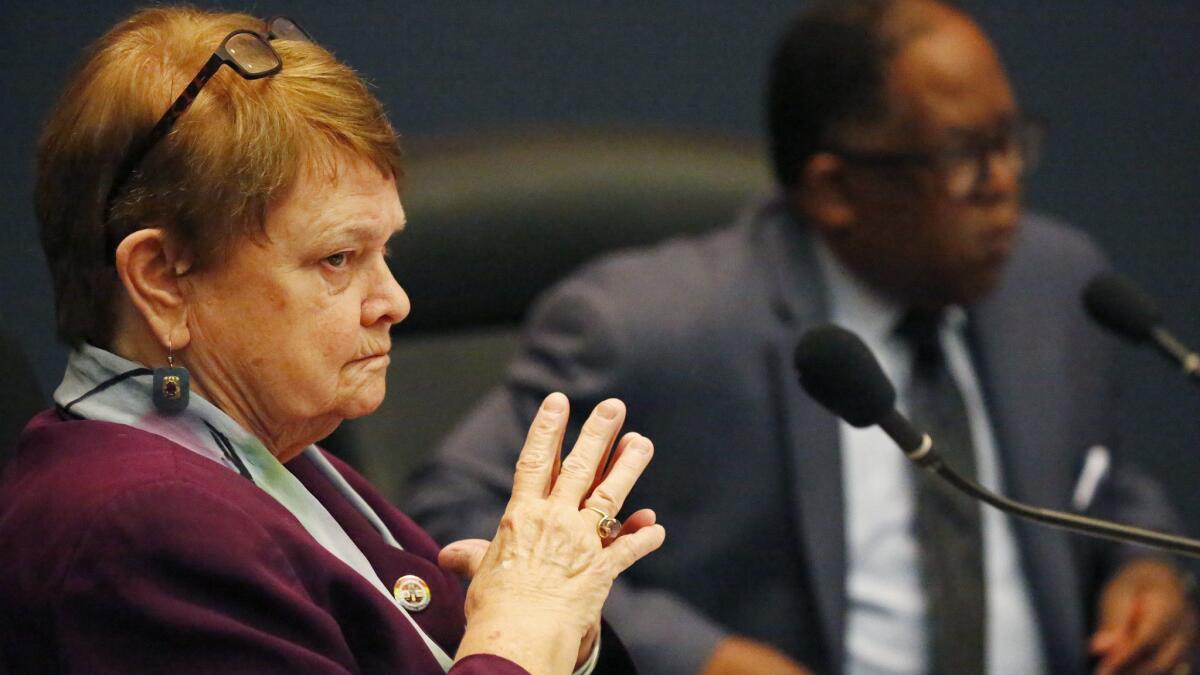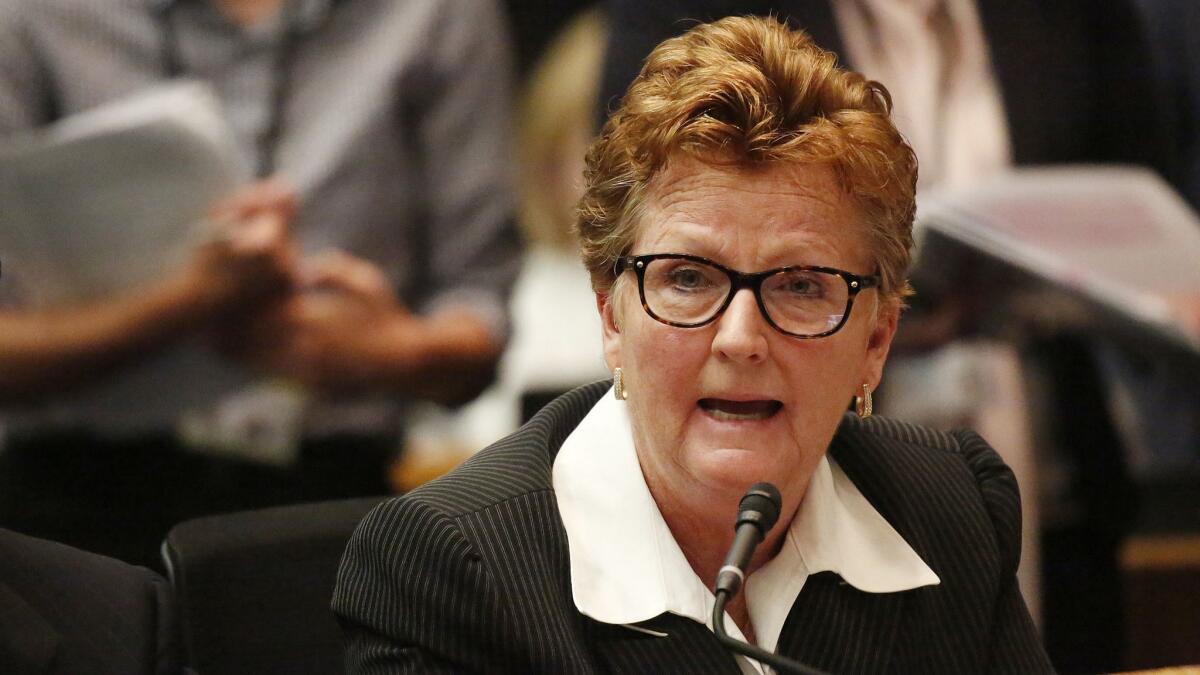Plan to phase out pepper spray this year at L.A.’s juvenile halls hits a potential snag

- Share via
When Los Angeles County leaders voted unanimously in February to ban the use of pepper spray in its juvenile detention facilities, officials were tasked with phasing out the chemical agent by the end of the year.
But on Tuesday, the head of the county’s Probation Department — which runs juvenile detention facilities — told the Board of Supervisors that her agency will need more time.
Chief Probation Officer Terri McDonald projected that it will take until the end of September 2020 to eliminate oleoresin capsicum, also known as OC or pepper spray.
Under her plan, the department will conduct training and will begin to allow only two staff members per shift to carry the chemical agent. After a few months, the pepper spray canisters will be kept in a locked box, to be used only in extreme emergencies, followed by another step to eliminate its use altogether.
McDonald said she’s committed to making her department a more therapeutic place for youths to rehabilitate, but the transformation will require more training and staff in order to meet the demands made by supervisors.
“What’s been proposed is a paradigm shift from detention and control to treatment in a trauma-informed setting,” she said. “The truth of the matter is, we’re not going to be able to provide the kind of services and support to do the kind of programming we need to do” without more experienced staff.
Supervisor Sheila Kuehl, who co-authored the motion to ban pepper spray in February, said she welcomed the input from McDonald.
“I am very supportive of training,” Kuehl said, acknowledging how difficult it will be to bring about a profound culture change. “What the probation officers have said to us is, ‘We’re sorry, we have not been trained to do this 180 [degree turn].’”
Supervisor Mark Ridley-Thomas, who also pushed to ban pepper spray, said the proposed moves are important because the county’s juvenile detention facilities have been problematic for too long.
“We can do better. We owe it to those in our care. We owe it to ourselves,” he said. “So probation reform, no one said it would be easy. It’s a heavy lift, but that’s why we use the language of transparency and accountability.”
The Board of Supervisors didn’t take action Tuesday on McDonald’s plan.

McDonald said the shift away from using pepper spray could cost nearly $34 million a year, which would be used to hire more officers and provide ongoing training. Another $5 million in one-time expenditures also would be needed for infrastructure. Other expenses could include providing more mental health care for detainees.
She cautioned that it’s unclear whether the costs would require additional funding from the county because the Probation Department could use savings from the recent shutdown of several juvenile camps and the planned closure of Los Padrinos Juvenile Hall by July 31.
The estimate includes reducing the staff-to-youth ratio from nine children per staff member to five-to-one, as well as hiring more experienced officers who are better equipped to work with young people. Acting as an entry point for employment, the juvenile detention facilities — which house about 750 children who often have medical and mental health crises as they go through the criminal justice system — are currently supervised by the least experienced officers, McDonald said.
For months, the county’s troubled Probation Department has been dogged by reports that its detention officers have been using pepper spray at alarmingly high rates to control and discipline youths in juvenile facilities.
The county’s Office of Inspector General released findings in February showing that probation officers — who supervise more than 7,000 youths in mostly at-home settings as well as those in detention facilities — have engaged in a pattern of inappropriate and avoidable uses of pepper spray in recent years. Detention officers didn’t always allow youths to rinse their eyes and skin after being sprayed, forcing at least one child to do so in a toilet, according to the inspector general’s report.
In April, six officers at Los Padrinos Juvenile Hall were charged with child abuse and assault over allegations of unreasonable use of pepper spray. They have all pleaded not guilty.
Some detention officers also say they’ve become involved in a rising number of assaults from youths and need the spray to maintain control in a dysfunctional and increasingly dangerous environment, where many are afraid to come to work. The assault rate per 100 youths rose by more than 120% between 2015 and 2018 at juvenile halls and camps, according to Probation Department data.
Department staff said they studied other jurisdictions that have tried to eliminate pepper spray, noting that juvenile facilities in Louisiana and Oklahoma successfully phased it out over the course of one-and-a-half to two years.
Twitter: @mayalau
More to Read
Sign up for Essential California
The most important California stories and recommendations in your inbox every morning.
You may occasionally receive promotional content from the Los Angeles Times.











